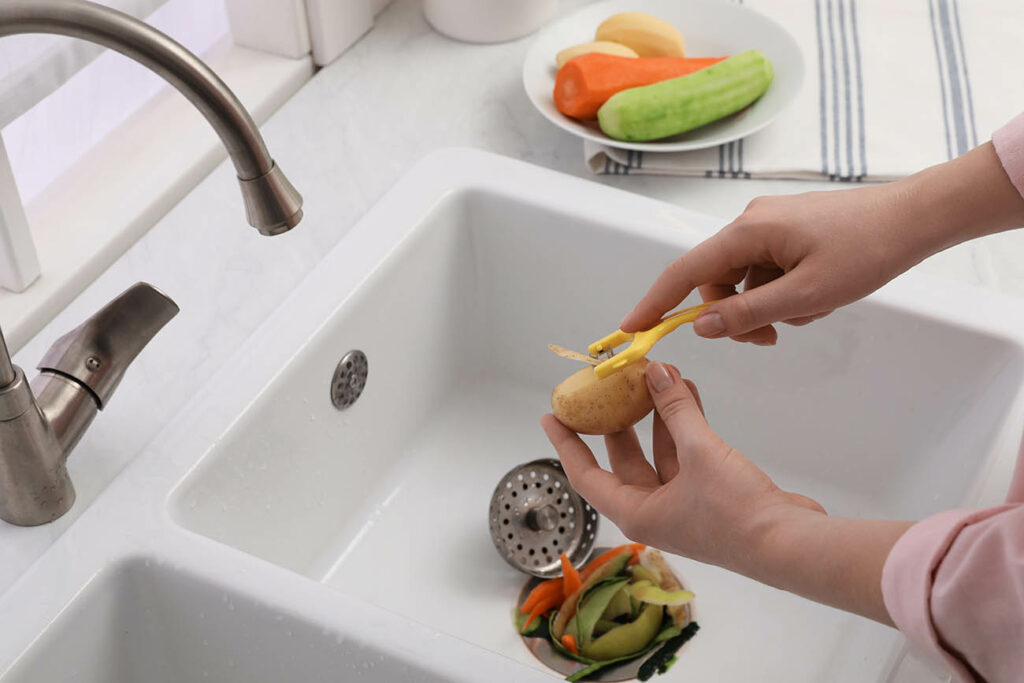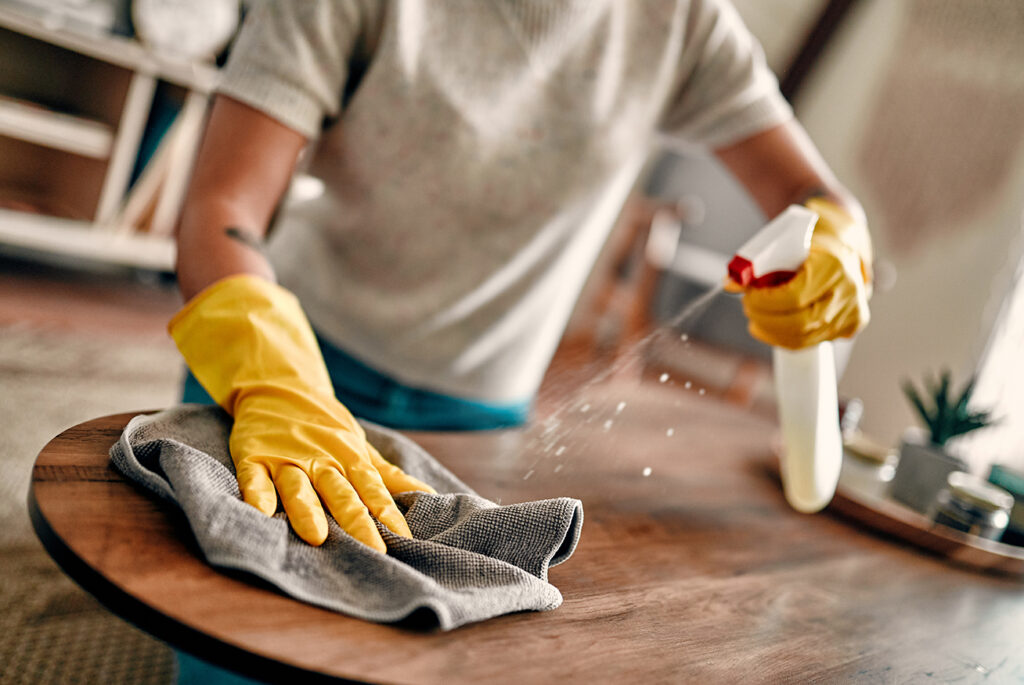Have you ever wondered how to clean a garbage disposal? It’s something many of us overlook, even though it’s an important kitchen appliance that many of us use every day. If you ever lean over your sink and smell an unpleasant odor coming from the drain, you’ll know it’s time to clean your disposal.
But which disposal-cleaning tips out there actually work? Which ones are based on myth? And perhaps most important, which tips might actually damage your disposal?
We’ve gathered all the information you need, so let’s dive in!
How Difficult Is It To Clean A Garbage Disposal?
Generally, it’s cheap and easy to clean a garbage disposal. Here are some time, cost, and difficulty estimates:
Duration: 10 minutes
Cost: Less than $5
Difficulty level: Easy
Why Should You Clean Your Garbage Disposal?
If you’re wondering why you need to clean your garbage disposal, the answer is straightforward: disposals can be breeding grounds for bacteria and mold if they’re not cleaned regularly. This typically happens when small bits of food get stuck on the splash guard or in the grinding chamber and don’t grind up properly.
If you haven’t yet learned how to clean a disposal, realize that it’s a good practice to do so at least once a week. If you fail to clean your disposal on a regular basis, food buildup can eventually cause the disposal to malfunction.
How To Clean Your Garbage Disposal
Safety & Preparation
Before cleaning, it can help to shine a light down the drain to see if there’s anything clogging the disposal. If there is, take the following steps:
- Either disconnect the disposal from its power source, or cut the power to your kitchen.
- Use tongs or pliers to pull blockages out of the drain.
- Plug the sink, and fill it halfway with hot water.
- Pull out the plug, and run the disposal as you let the sink drain.
When cleaning your garbage disposal, safety should always be your #1 priority. Never stick your hand down a garbage disposal, regardless of whether you’ve cut power to the device. Even motionless blades can cut your hand enough to send you to the emergency room, so don’t risk it!

Cleaning Your Garbage Disposal
Once any clogs are cleared away, it’s time to clean your garbage disposal. Note that it’s usually best not to use chemicals, as they can damage any metal or plastic parts in your unit. Once you’ve confirmed that your power is still off, follow these steps:
- Remove and wash the splash guard. If it’s feasible, remove the splash guard at the top of your drain, and wash any food bits off of it.
- Wet a long-handled scrub brush with warm water. Make sure the brush’s head is small enough to fit down the drain.
- Drizzle soap on the scrub brush’s head. Make sure you’re using dish soap that can cut through grease.
- Scrub out the inside of the disposal. Stick the long-handled brush into the drain, and run it around the bottom and sides of the disposal.
- Replace the splash guard. This will help block any water droplets when you flush out the sink.
- Flush the disposal with warm water. After turning the disposal’s power back on, fill the sink halfway with warm water, then drain it while running the disposal.

How To Prevent A Garbage Disposal From Smelling
If you want to keep your garbage disposal from developing unpleasant odors, you’ll need to take the following steps at least once a month to avoid having bacteria or mold develop:
- Pour 1 cup baking soda / 1 cup vinegar down the drain. Allow the mixture to sit in the disposal for 30 minutes to an hour. Then flush the mixture down with boiling-hot water while running the disposal.
- Grind a lemon peel. This can be a great way to remove any lingering odors.
- Grind up ice cubes. While this won’t actually sharpen your disposal blades (contrary to some myths out there), it can help remove excess food from them. If you want to go the extra mile, try grinding up ice cubes made of lemon juice or vinegar!
Garbage Disposal Cleaning Myths
If you’re a homeowner, you’ve likely heard a few myths about cleaning your garbage disposal. It’s important to separate fact from fiction! Here’s a list of items that should never be tossed into a garbage disposal:
- Greasy or starchy foods
- Coffee grounds
- Egg shells
- Plastic items
- Bones
- Fibrous vegetables
Not liking the idea of cleaning your garbage disposal by yourself? Hire a Tasker to help!














